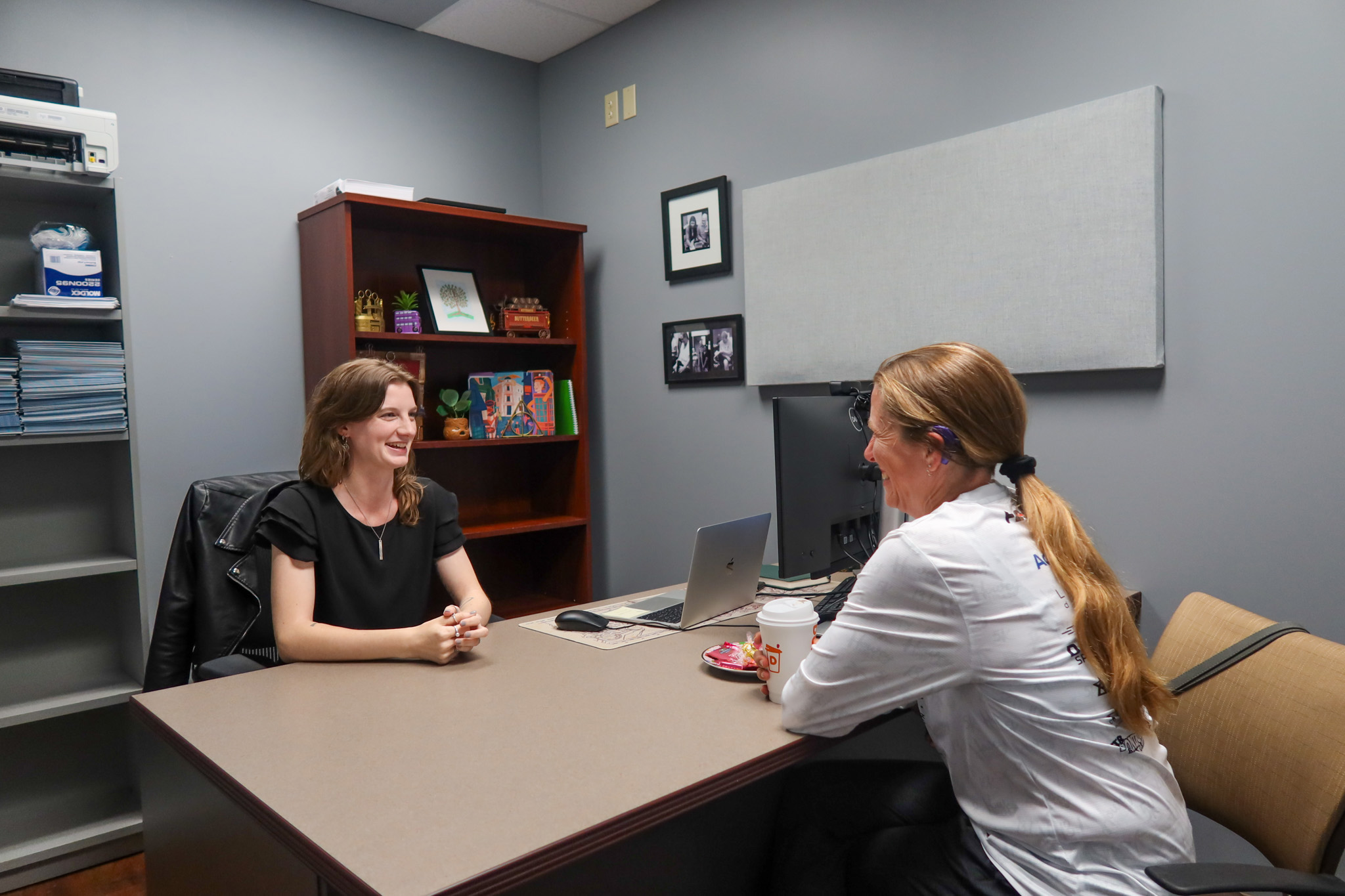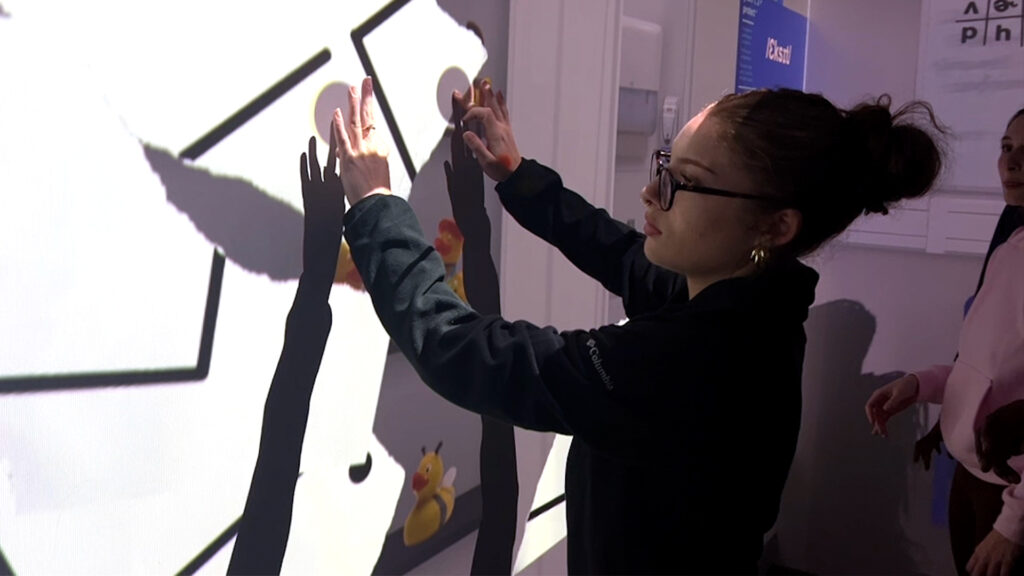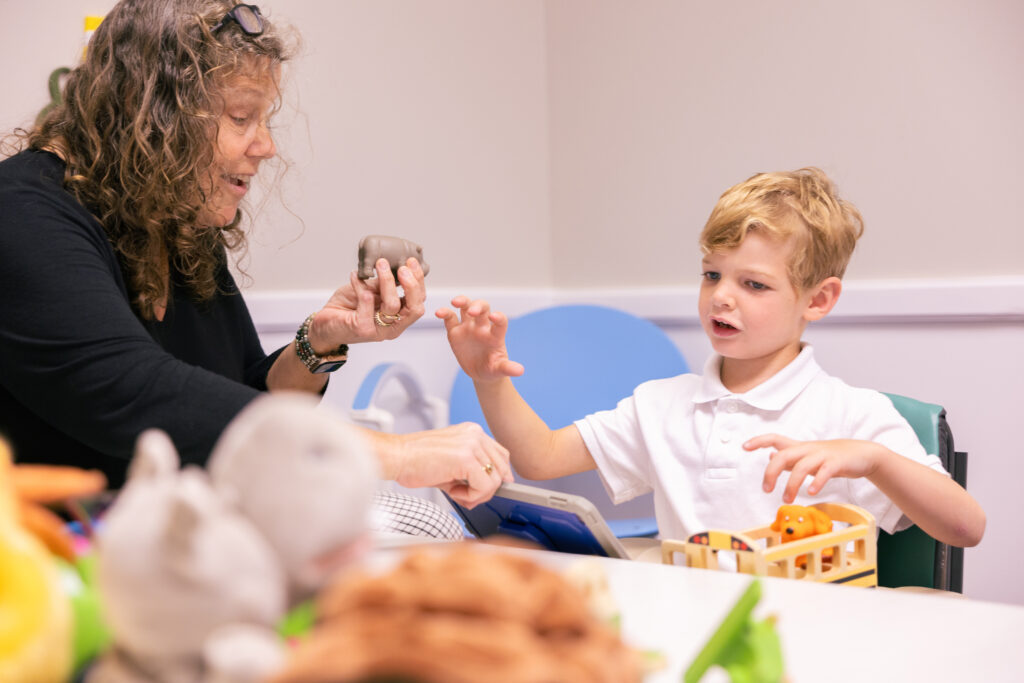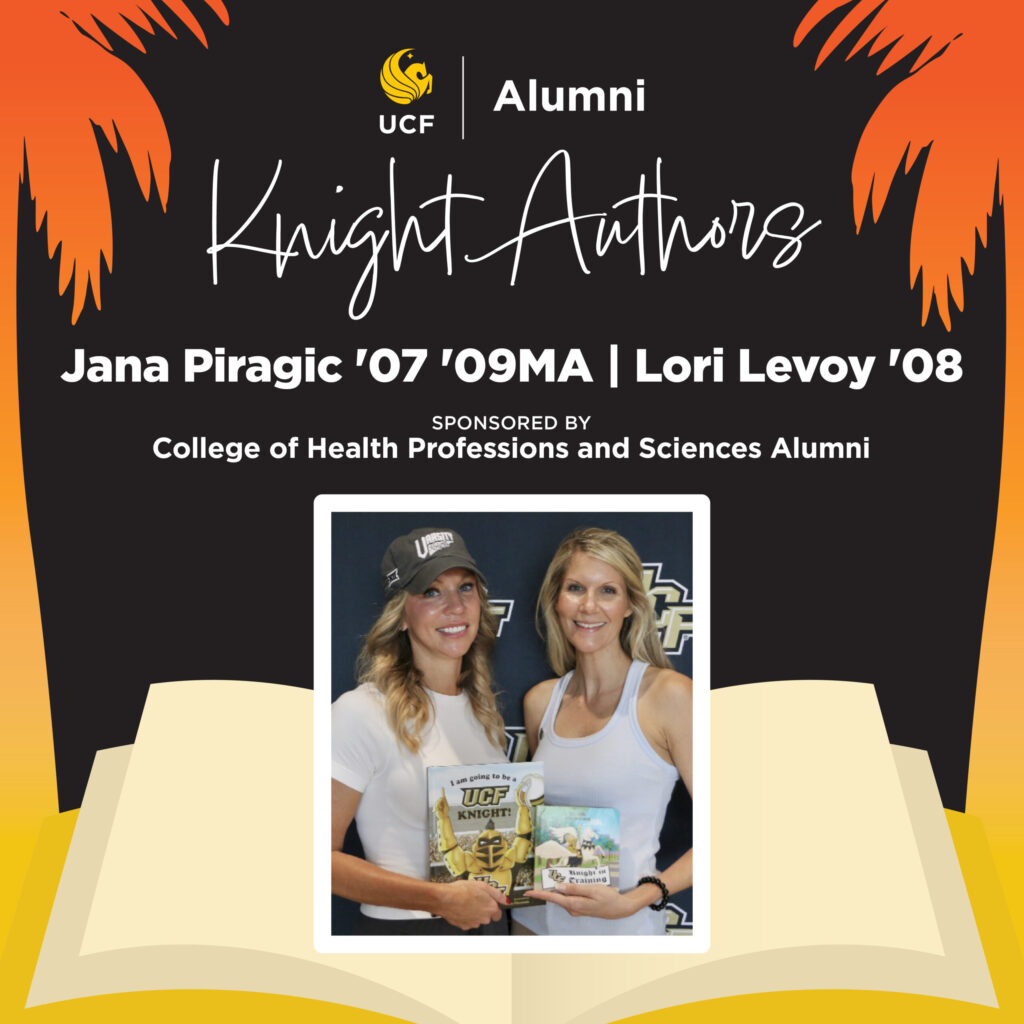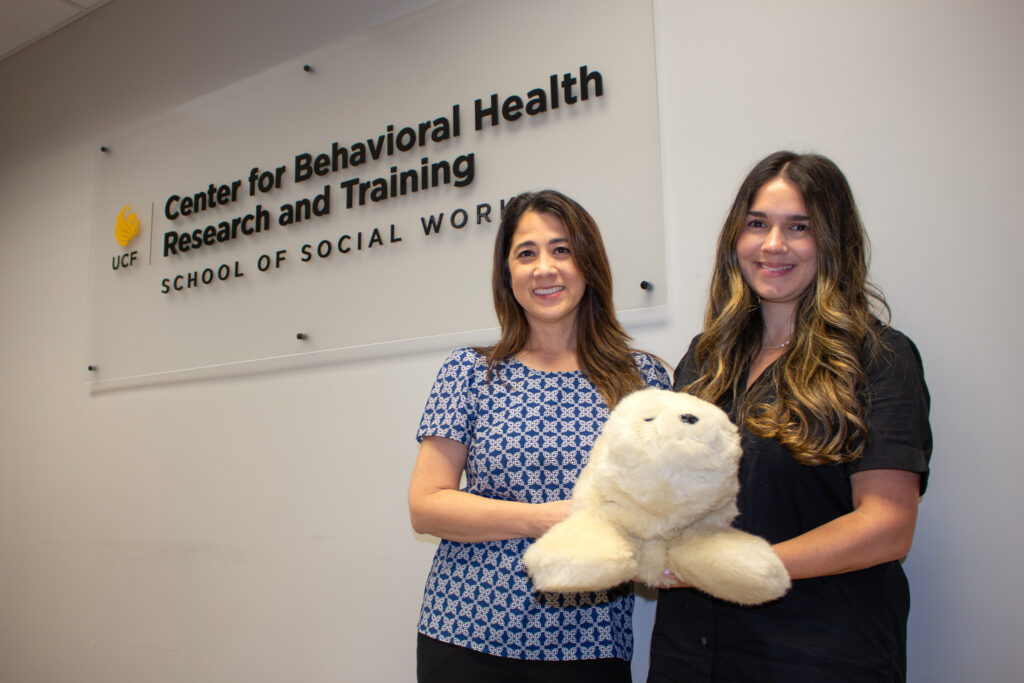Graduate social work students are now serving alongside communication sciences and disorders (CSD) student clinicians at the UCF Health Aphasia House as part of a new interprofessional learning opportunity designed to provide additional support to stroke survivors and their families while teaching students more about the value of comprehensive interprofessional rehabilitative care.
The program, which began in Spring 2024, aims to offer support for the caregivers of patients seeking treatment at the Aphasia House. Caregivers can participate in individual therapy sessions with social work graduate students while their loved one receives six weeks of intensive speech-language therapy from Aphasia House student clinicians from the School of Communication Sciences and Disorders. Master of Social Work (MSW) students must complete 1,000 hours of field experience to graduate, a requirement that provides a valuable learning opportunity and helps better prepare them to enter a wide variety of careers with schools, healthcare facilities, non-profits, government entities and private facilities.
Last year, CSD and MSW students attended several focus groups with patient families to better understand their needs as caregivers, and the effectiveness of the social work services provided. This year, MSW student Caitlyn Pettway has further broadened the range of services that MSW students provide to clients and their families at the Aphasia House.
Pettway, who began participating in her field experience at the Aphasia House in January and will continue there through the fall semester, attends clients’ speech-language therapy treatment sessions and weekly staffing meetings where she learns from CSD student clinicians about the challenges people with aphasia face and how those challenges could impact progress. The CSD students offer knowledge about multiple means of supported communication, including both low- and high-tech augmentative and alternative, communication (AAC), as well as provide perspectives on patient challenges and progress.
In turn, the CSD students receive reports from Pettway about the social-emotional support she provides to clients and their families, as well as strategies to support the clients during speech and language therapy sessions while maintaining client confidentiality.
“This position, even within my third month, has already taught me a lot since I am the sole social worker here at the moment,” Pettway says. “It’s taught me how to shift the way that I
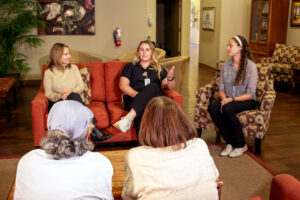
communicate to further meet my clients where they’re at.”
Whether Pettway is having a private session with a client who has aphasia or with the caregiver of one, she says that her position has taught her what works best when navigating the healing process. Pettway says a trial that is seen more often than not, is accepting care when you believe that you’re not the one who technically needs it.
Rachel Potvin unexpectedly took on a caregiver role after her husband experienced a stroke that affected his speech and mobility. Potvin has completed six weeks of sessions with Pettway while her husband has undergone treatment at the Aphasia House and says that she and her husband both see a difference.
“I initially was like ‘this isn’t for me; this is all for him. We’re here for him,’” Potvin says. “This experience has been so beneficial to me because I’ve seen the importance of the caregiver taking care of themselves and getting the care that they need because, sometimes, you can’t do it yourself, you’re doing everything else yourself.”
Pettway says that she is an advocate for the idea that “you can’t take care of others if you aren’t taking care of yourself,” and she worked to help Potvin understand that in their first session.
According to Potvin, factoring in professional care for herself during her family’s journey with aphasia has given her “an emotional foundation,” allowing her to better regulate her emotions and manage stress.
Angela Ziegler, a clinical instructor in the School of Communication Sciences and Disorders, serves as a liaison to the MSW students. She introduces Pettway to each new family that walks through the Aphasia House doors.
“I make sure to let them know what her hours will be and what services she’s able to provide and ask them to please make themselves available during these times, so that while their loved one is getting care, they can get care too,” Ziegler says. “Aphasia is such an isolating experience, not just for the person who has aphasia, but for everybody who’s involved.”
Zeigler, who has more than a decade of experience working in inpatient rehabilitation and acute care of adults who have suffered neurological injuries, says support for care providers is just as essential to provide the best quality care. She said that treatment without interprofessional collaboration is like driving a car with one wheel.
The need for a comprehensive approach to aphasia treatment is why clients and their families seeking treatment at the Aphasia House can also receive assistance through a host of other clinical services from the College of Health Professions and Sciences.
At the client’s initial evaluation, clinicians administer a hearing screening and can provide a comprehensive audiology exam and offer loaner hearing devices to those who need them.
Additionally, the Florida Alliance for Assistive Services and Technology Atlantic Region Demonstration Center (FAAST ARDC) affords clients access to a variety of assistive technology to improve client’s lives across all domains, including adaptive gaming equipment, speech generating devices, kitchen and home aids. FAAST provides Aphasia House clients with access to free assistive technology demonstrations, trainings, loans, and information and assistance services throughout their stay.
And, the UCF Health Physical Therapy Clinic, with specialty practice areas that include geriatrics, neurology and orthopedics, is also available to support the physical and mobility needs of clients during their participation in the Intensive Comprehensive Program (ICAP) at the Aphasia House, and beyond, if desired.
“Speech pathology is an incredible field, and we do important work, but without social work, physical therapy, occupational therapy, and other healthcare providers to help drive the engine, the car’s just not going to go as far as it could,” Ziegler says.
